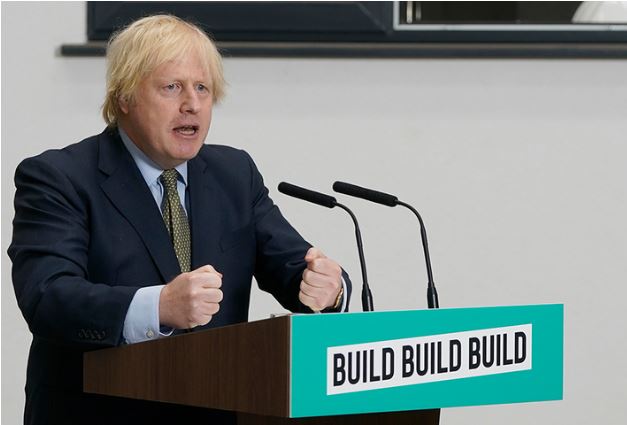Loadsa Money – Spring Statement Throws Cash At Skills Shortage
The Spring Statement heralded lots of budget cuts but loads of money for construction – for housebuilding and to tackle the skills crisis by...
Read Full Article
As June ended, the Prime Minister set out the first steps in the strategy to rebuild Britain using building as the fuel behind an economic recovery across the UK - and resolve challenges that have plagued the country for at last three decades.
Build homes is top of the list along with making fixes to the NHS including building new hospitals and refurbishing others. Boris Johnson said there is a commitment to tackle the skills crisis and to mend the gap in opportunity and productivity and connectivity between the regions of the UK. Building will be done with a green agenda in mind.
“We will invest in and accelerate infrastructure across the UK; promote a clean, green recovery; reform our planning system; and strengthen the Union and local government.”
– Boris Johnson
MP, Prime Minister
The government will bring forward £5 billion of capital investment projects, including:
£1.5bn this year for hospital maintenance, eradicating mental health dormitories, enabling hospital building and improving A&E capacity.
£100m this year for 29 projects to improve the road network. Plus £10m for development work to unblock the Manchester rail bottleneck.
Over £1bn to fund the first 50 projects of a new, ten-year school rebuilding programme, starting from 2020-21.
£560m and £200m for repairs and upgrades to schools and FE colleges respectively this year.
£142mn for digital upgrades and maintenance to around 100 courts this year, £83m for maintenance of prisons and youth offender facilities, and £60m for temporary prison places.
£900m for a range of ‘shovel ready’ local growth projects in England over the course of this year and next. This will enable local areas to invest in priority infrastructure projects.
£96m to accelerate investment in town centres and high streets through the Towns Fund this year. This will provide all 101 towns selected for town deals with £500k-£1m to spend on projects such as improvements to parks, high streets, and transport.
New homes
New regulations will give greater freedom for buildings and land in town centres to change use without planning permission and create new homes from the regeneration of vacant and redundant buildings.
Under the new rules, existing commercial properties, including newly vacant shops, can be converted into residential housing more easily.
The changes include:
More types of commercial premises having total flexibility to be repurposed through reform of the Use Classes Order. A building used for retail, for instance, would be able to be permanently used as a café or office without requiring a planning application and local authority approval. Pubs, libraries, village shops will not be covered by these flexibilities
A wider range of commercial buildings will be allowed to change to residential use without the need for a planning application.
Builders will no longer need a normal planning application to demolish and rebuild vacant and redundant residential and commercial buildings if they are rebuilt as homes.
Property owners will be able to build additional space above their properties via a fast track approval process, subject to neighbour consultation.
These changes, are planned to come into effect by September.
The Prime Minister also announced that work will begin to look at how land owned by the government can be managed more effectively including homes to be built.
These announcements come alongside a package of measures to support home building across England, including:
A £12bn affordable homes programme that will support up to 180,000 new affordable homes for ownership and rent over the next 8 years.
Included in the affordable homes programme will be a 1,500 unit pilot of ‘First Homes’ - houses that will be sold to first time buyers at a 30% discount.
Funds from the £400m Brownfield Land Fund have been allocated to the West Midland, Greater Manchester, West Yorkshire, Liverpool City Region, Sheffield City Region, North of Tyne and Tees Valley to support around 24,000 homes.
The Home Building Fund to help smaller developers access finance for new housing developments will receive additional £450m boost. This is expected to support delivery of around 7,200 new homes.
The government also intends to bring forward funding to accelerate infrastructure projects in Scotland, Wales, and Northern Ireland.
Picture: Prime Minister Boris Johnson.
Article written by Cathryn Ellis
07th July 2020